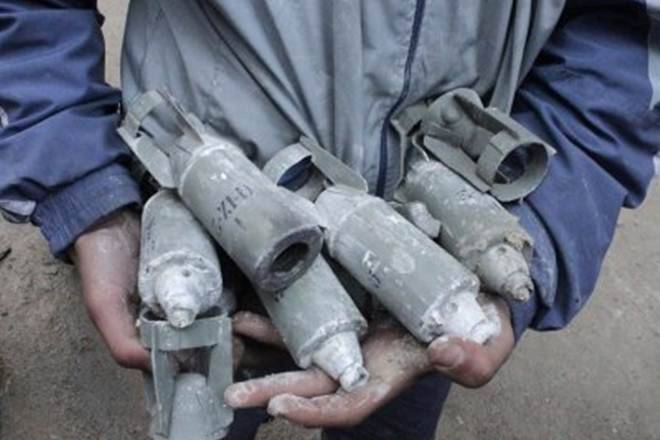Alwaght- The Saudi-led military coalition has used 3,179 cluster bombs against Yemeni people since the outbreak of the brutal aggression against the defenseless Arab nation in 2015, the director-general of the Yemen Executive Mine Action Center (YEMAC) said.
Ali Sofra said the civilian casualties of the bombardments, mostly women and children, have exceeded 1,000, and most of them were in agricultural and grazing areas, Iraq’s al-Maloumeh news website reported on Sunday.
Saudi Arabia, accompanied by its allies including the United Arab Emirates (UAE), has been leading a war against Yemen since March 2015 with the aim of bringing the former pro-Riyadh government back to power.
The war has also been accompanied by an all-out siege of the impoverished country. It has killed tens of thousands of Yemenis and turned Yemen into the world’s worst humanitarian crisis.
Back in June 2020, Yemen’s Ministry of Human Rights warned that cluster munitions pose a serious danger to the lives of civilians, especially women and children, if they come in close contact with them.
The ministry added that the Saudi-led coalition has used thousands of cluster bombs on residential areas, leaving many civilians dead or injured.
“According to accurate statistics obtained by the center, there are eight types of cluster bombs that have been used in Yemen, which were made by the United States, Britain, and Brazil,” Sofra said.
The cluster bomb attacks concentrated in nine provinces, namely Sa'ada, Hajjah, the capital Sana'a, Hudaydah, Jawf, Amran, Mahweet, Dhamar and Ta'izz, according to YEMAC’s director.
Acting Minister of Human Rights Ali Al-Dailami also said in remarks on Sunday that the UN impedes cooperation to complete the file of removing the internationally banned cluster bombs.
Al-Dailami said cluster bombs that are used in the war on Yemeni people are part of the internationally prohibited weapons, Yemen Press Agency (YPA) reported.
He also indicated that the Saudi-led coalition countries intentionally bought illegal weapons of unknown sources to escape legal liabilities.
In a tweet early on Monday, Sofra criticized international and human rights organizations for avoiding talking about the fact that there are airstrikes and cluster bombs used against Yemen.
“Any victims of cluster bombs in Yemen are not mentioned in their annual, human rights and humanitarian reports,” he lamented.
The new US administration announced on Wednesday that it has suspended weapons sales to Saudi Arabia and the UAE, which were authorized by former President Donald Trump.
It came a week after President Joe Biden, who has promised to reassess Washington's relationship with Riyadh, was inaugurated.
The announcement was welcomed by Amnesty International, which called on European countries to follow suit and end weapons exports to the two countries involved in the bloody war on Yemen.
“President [Joe] Biden’s decision to freeze arms sales to Saudi Arabia and the UAE represents a welcome relief in an otherwise shameful chapter of history. Almost six years of conflict in Yemen, fueled by irresponsible arms transfers, have left 14 million Yemenis in dire need of humanitarian assistance,” Philippe Nassif, advocacy director for the Middle East and North Africa at Amnesty International USA, said on Thursday.
On Friday, Italy announced that it had permanently stopped exports of arms to Saudi Arabia and the UAE amid worries over their continued war crimes in Yemen, citing Rome’s commitment to ending the bloodshed in Yemen and protecting human rights
“This is an act that we considered necessary, a clear message of peace coming from our country. For us, the respect of human rights is an unbreakable commitment,” Italian Foreign Minister Luigi Di Maio said in a statement.



























